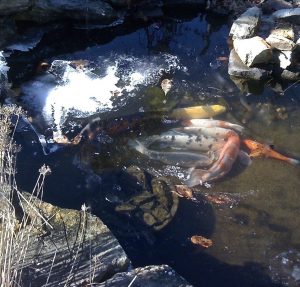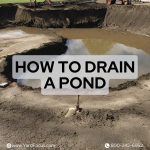Have you ever wondered how long it takes for a pond to freeze completely? The answer to this question depends on various factors such as the size of the pond, the temperature outside, and the depth of the water. In this article, we will explore the different factors that influence the freezing of a pond and provide you with an estimate of how many days it might take for a pond to freeze.
Factors Affecting Pond Freezing Time
Several factors play a crucial role in determining how quickly a pond will freeze:
- Size of the Pond: The larger the pond, the longer it will take to freeze completely. Larger bodies of water have more thermal mass, which means they retain heat more effectively, slowing down the freezing process.
- Temperature: The outside temperature is a significant factor in how quickly a pond will freeze. Colder temperatures will cause the water to freeze faster, especially if the temperatures remain consistently below freezing.
- Depth of the Water: Deeper ponds will take longer to freeze compared to shallow ponds. This is because deeper water has more volume and therefore requires more time for the entire body of water to reach the freezing point.
- Wind Speed: Wind can also affect how quickly a pond freezes. Strong winds can disrupt the surface of the water, preventing ice from forming uniformly and slowing down the freezing process.
- Presence of Insulation: If the pond is covered with snow or ice, it can act as an insulator, trapping heat and preventing the water underneath from freezing quickly.
Estimating the Freezing Time
Given the factors mentioned above, it is challenging to provide an exact number of days it will take for a pond to freeze. However, we can offer a general estimation based on typical conditions:
| Pond Size | Estimated Freezing Time |
|---|---|
| Small Pond (Less than 1 acre) | 3-5 days |
| Medium Pond (1-5 acres) | 5-10 days |
| Large Pond (More than 5 acres) | 10+ days |
These estimations are based on average winter temperatures and normal weather conditions. However, it is essential to remember that the actual freezing time can vary significantly based on the specific characteristics of the pond and the prevailing weather conditions.

Credit: myfishingpartner.com

Credit: www.mainesportsman.com
Protecting Your Pond in Winter
During the winter months, it is crucial to take steps to protect your pond from freezing over completely:
- Aeration: Installing a pond aerator can help prevent the water from freezing by keeping it moving. Moving water is less likely to freeze quickly compared to stagnant water.
- De-Icing Equipment: Using a de-icer or pond heater can help maintain an opening in the ice, allowing gases to escape and oxygen to enter the water, essential for the survival of fish and other aquatic life.
- Remove Snow: Clearing snow off the surface of the pond can help prevent it from acting as an insulator, allowing the water to freeze more quickly.
- Insulate Pipes: If you have pumps or other equipment in the pond, make sure to insulate the pipes to prevent them from freezing and causing damage.
- Monitor Temperature: Keep an eye on the weather forecast and pond temperature regularly to anticipate freezing conditions and take necessary precautions.
Conclusion
While the exact number of days for a pond to freeze can vary based on several factors, understanding the influences that affect the freezing process can help you better prepare and protect your pond during the winter months. By considering the size of the pond, temperature, depth of the water, wind speed, and insulation, you can estimate the freezing time more accurately and implement necessary measures to safeguard your pond and its inhabitants.





